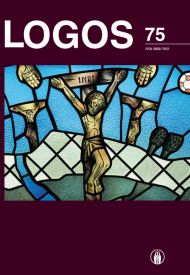Katalikybės Samprata Ir Vaidmuo Jaunųjų Katalikų Sąjūdžio Ideologijoje
Catholicism: Concept and Role in the Ideology of Young Catholic Movement
Author(s): Ramūnas LabanauskasSubject(s): Christian Theology and Religion, Social Philosophy, Philosophy of Religion, Sociology of Religion, History of Religion
Published by: Visuomeninė organizacija »LOGOS«
Keywords: catholicism; exclusivism; inclusiveness; pluralism; Catholic Action;
Summary/Abstract: In the 4th decade of the twentieth century a number of talented young Catholic intellectuals (Pranas Dielininkaitis, Ignas Skrupskelis, Juozas Ambrazevičius (J. Brazaitis), Antanas Maceina and many others) joined the Lithuanian social and cultural life. Their ambitions and ideological principles were declared in the Declaration „To the creation of organic nation” the ideas of which formed the basis for the Catholic Movement in historiography called the Young Catholic Movement (YCM) in 1936. Young Catholics, who did not belong to Catholic elite and followed the doctrine of Catholic Action (CA), prioritized the strengthening of Lithuanian nation and modernization of the country. Catholic concept of YCM is analysed through traditional and open distinction in Catholicism, the relation with expression of exclusivism – inclusiveness – pluralism scheme in the twentieth century. The conclusion can be drawn that YCM Catholicism is attributed to inclusiveness, i.e. it was open Catholicism, which was called wide, characterized by the Christ-centring, ecumenism, spring of community and the elevation of the role of secularism by Young Catholics themselves. This concept of Catholicism enabled the young Catholics to turn to nationalism and social radicalism.
Journal: LOGOS - A Journal of Religion, Philosophy, Comparative Cultural Studies and Art
- Issue Year: 2013
- Issue No: 75
- Page Range: 131-143
- Page Count: 13
- Language: Lithuanian

